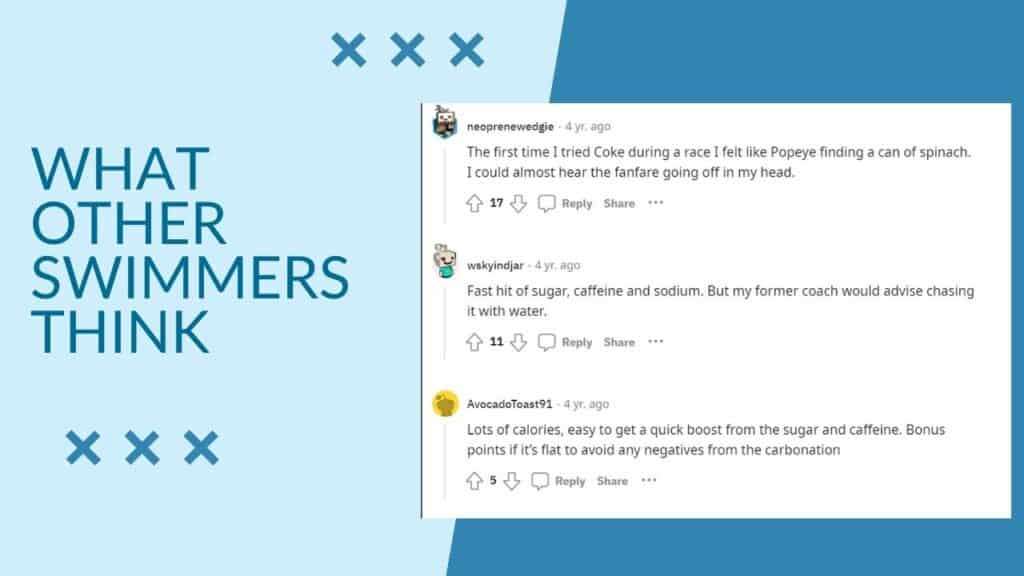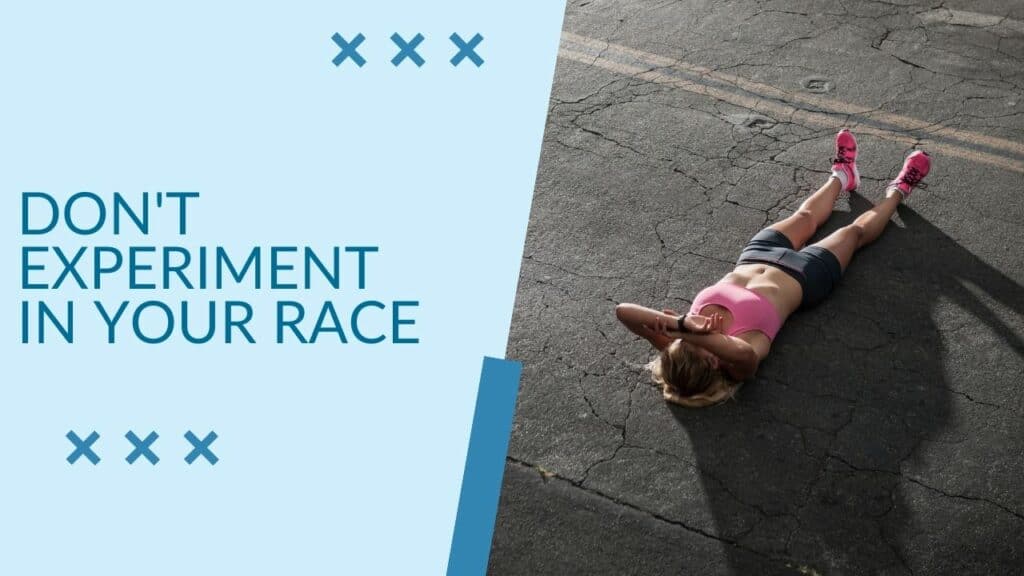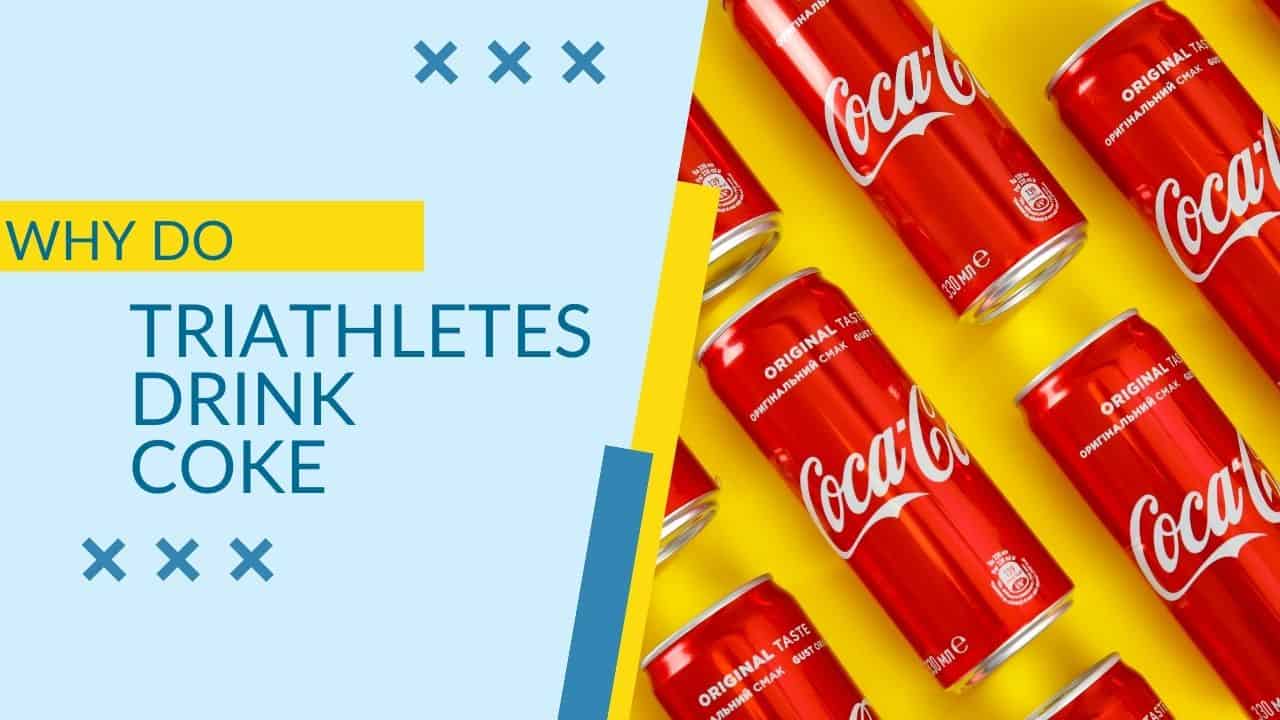Picture this: You’re in the middle of a grueling triathlon, pushing your body to the limit, and you suddenly find yourself craving a cold, refreshing Coke.
It might seem like the LAST thing you should drink while running, but it turns out that there’s a reason behind this popular pick-me-up.
If you’ve ever wondered why do triathletes drink Coke we’ll break down how soda can be a surprising tool in endurance sports.
So, grab a can, and let’s get started on uncovering the secret behind this surprising sports beverage choice.
Table of Contents
- The role of sugar and caffeine in endurance events
- My experience with soda & races
- Why triathletes choose Coke over other beverages
- Alternatives to Coke for triathletes
- Conclusion
The role of sugar and caffeine in endurance events
When it comes to endurance sports, fueling your body properly is crucial for optimal performance. Two essential components that can significantly impact your performance are sugar and caffeine, both of which can be found in Coke.
The benefits of sugar
Sugar is a source of quick and easily digestible energy for our bodies. During prolonged physical activities like triathlons, our bodies rely on carbohydrates, such as sugar, as the primary source of fuel. Consuming sugar during a race can help replenish the glycogen stores in our muscles, preventing energy depletion and the dreaded “bonking” or “hitting the wall” feeling.
Coke contains a combination of glucose and fructose, which can be absorbed by the body quickly, providing an almost instant energy boost. This rapid absorption rate makes Coke an appealing choice for athletes in need of a quick pick-me-up during endurance events.
The power of caffeine
Caffeine is a well-known stimulant that can enhance athletic performance in various ways. It can help improve focus, alertness, and concentration, which can be beneficial when you’re tackling a challenging course or trying to maintain a consistent pace.
Additionally, caffeine has been shown to reduce the perception of effort and pain, allowing athletes to push themselves harder and further during competition.
Coke contains a moderate amount of caffeine (approximately 34 mg per 12-ounce can), making it an attractive option for triathletes who want to reap the benefits of caffeine without overloading on stimulants. (I can tell you from experience what happens if you take in too much caffeine while racing 💩)
Together, the sugar and caffeine in Coke can provide a much-needed boost to triathletes during endurance events, helping them maintain energy levels and stay mentally sharp. This unique combination of ingredients is one of the main reasons why Coke has become a popular choice among endurance athletes.

My experience with soda & races
I can tell you from first-hand experience, there are pros and cons to drinking soda at races. During an ultra I participated in, I noticed they had flat cola at the aid station. I was really craving a sugary beverage, so I drank coke. Later in a race, I got really bad cramps because I didn’t get enough sodium. (Unlike Gatorade, Coke doesn’t contain as many electrolytes).
Not only that, but toward the end of the race, I reached an aid station, eager to pour some water over my head to cool down. In my fatigue, I grabbed what I thought was a water cup, but it turned out to be Sprite at a flat cola table.
As a result, I had to finish the race covered in sticky soda, and in tears from such bad cramps. I ended up int the aid tent afterward where they pumped me full of electrolytes.
I strongly recommend trying cola in training if you plan on using it in a race. While the soda tasted great late in the run, it wasn’t giving my body what it needed.
If you’ve just completed an open water swim and a big bike ride, make sure you’ve got enough salt in your system before chugging a flat coke.

Why triathletes choose Coke over other beverages
While there are many sports beverages and energy drinks on the market, some triathletes prefer Coke for a few key reasons:
- Familiar taste: Many people enjoy the taste of Coke, and during a race, the familiarity can be comforting and help maintain morale.
- Availability: Coke is often more readily available at aid stations during races, making it an easy and convenient choice for athletes.
- Simplicity: Coke’s simple formulation of sugar, caffeine, and water provides the necessary energy and hydration without added electrolytes, which some athletes may already be getting from other sources.
Alternatives to Coke for triathletes
While Coke can provide a quick energy boost during endurance events, it may not be the ideal choice for all athletes. Here are some alternatives to consider:
- Sports drinks: These beverages typically contain electrolytes, which can help with hydration and muscle function.
- Energy gels: These portable and easy-to-consume packets provide a concentrated source of carbohydrates and often include caffeine.
- Natural sources: Foods like bananas, dates, and honey can provide a natural sugar boost, while green tea or coffee can offer a caffeine lift.
Is it safe to drink Coke during endurance events?
Yes, in moderation. As with any source of sugar and caffeine, it’s essential to consume Coke in appropriate amounts to avoid potential side effects, such as digestive issues or overstimulation.
How much Coke should I consume during a race?
This depends on your what you can handle. Start with a small amount during training and adjust to find your limits (BEFORE YOU RACE).
Can I drink Coke during training sessions?
Yes, incorporating Coke into your training can help you determine if it’s a beneficial addition to your race-day nutrition strategy. You never want to try something new on race day!
Are there any negative effects of consuming Coke during endurance events?
Drinking excessive amounts of Coke can lead to gastrointestinal distress, overstimulation from caffeine, and potential blood sugar spikes and crashes. Moderation is key. Many aid stations will have flat cola at a table so the fizz won’t upset your stomach.
Conclusion
Coke’s combination of sugar and caffeine makes it a popular choice for triathletes seeking a quick energy boost during endurance events.
However, it’s essential to consume it in moderation and consider other alternatives to find the best nutrition strategy for your needs.
Experiment with different hydration and fueling methods during training to determine what works best for you, and always remember to pay attention to what you’re consuming during a race. The right nutrition strategy can be the difference between a successful race and a disappointing performance.

About the author
Hi! I’m Sam. And I’m a nerd. Swimming Nerd. Gear Nerd. Triathlon Nerd. I swam in high school and have even done a few sprint and Olympic distance triathlons. I’m excited to share my love of swimming with you through this site!

